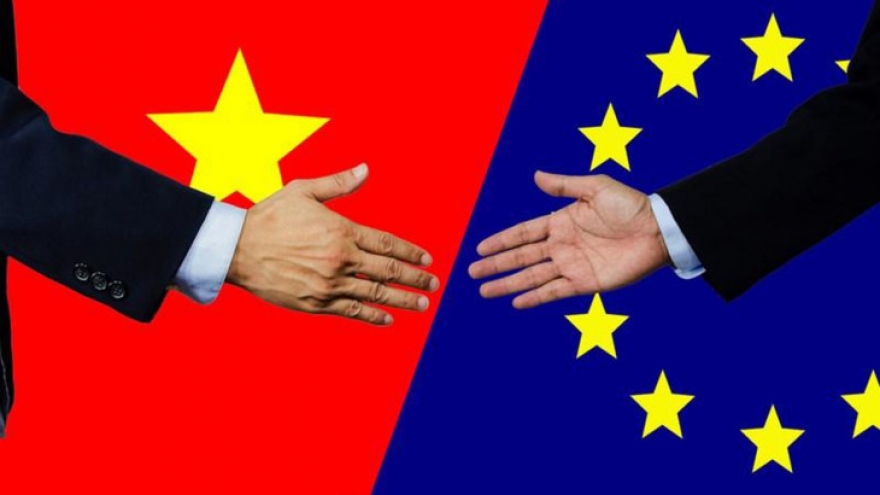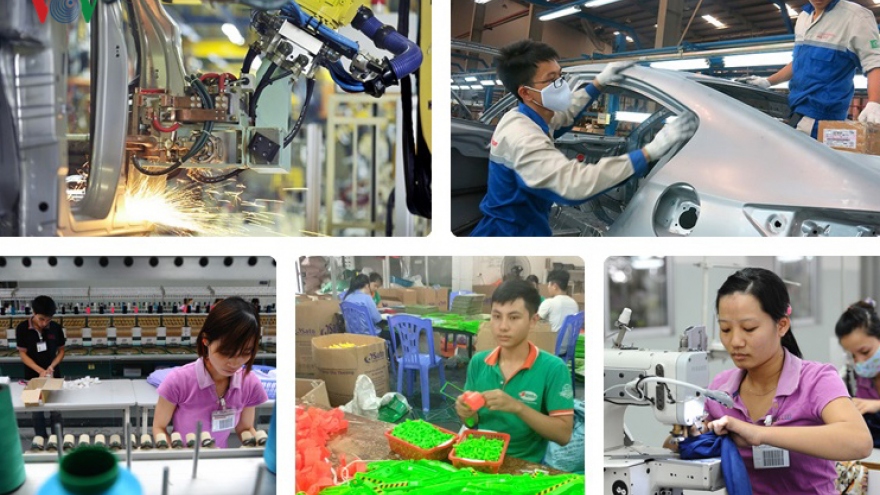EVFTA set to offer foreign investors dual benefits
VOV.VN - The freshly signed EU-Vietnam Free Trade Agreement is to allow foreign investors to enjoy huge benefits in terms of market entry and policy incentives when investing in the Southeast Asian country, experts have said.
 |
| Illustrative photo (Source: VOV) |
The EU-Vietnam Free Trade Agreement (EVFTA), inked by both sides on June 30, is expected to lure fresh investment from the bloc and even non-EU member countries as investors are eyeing imminent production shifts in order to benefit from EVFTA incentives.
Nguyen Chi Dung, Minister of Planning and Investment, said the EVFTA is a new generation trade pact that will significantly boost trust among foreign investors, especially those from the EU, in an attractive, friendly, and competitive Vietnamese investment destination.
Simultaneously, both Vietnamese firms and residents can now enjoy more favorable access to high-quality EU products and services at competitive prices.
Both EVFTA and EU-Vietnam Investment Promotion Agreement (EVIPA) are set to accelerate Vietnam’s economic renewal and improve institutions as well as give the local business climate a shot in the arm. This would encourage EU investors to do business in the country, Minister Dung said, adding that the newly-signed deals will also help Vietnam harmonize its foreign investment attraction with national benefits while bolstering sustainable development.
Stringent rules of origin prescribed by the EVFTA will act as a major factor that assists in wooing foreign investors to set up their production bases in Vietnam and further boosting their exports to the trading bloc, thus giving a boost to the country’s position within the global value chain.
Analysts said that the EVFTA will enable the country to attract higher quality FDI projects and improve the overall quality of foreign investments at large. Potential fields in which EU investors may join include high-tech manufacturing and processing, clean and renewable energy, and banking and financial services.
The deal and its subsequent spillover effects resulted by quality EU-invested projects and the transfer of technology would underpin growth within the country’s private sector. However, these effects would only be felt as a result of thorough preparations for qualified workforce and the effective absorption of cutting-edge technologies by domestic enterprises.
Vietnam is currently home to 2,244 EU-invested projects with the total registered capital of US$24.67 billion. The EU investment inflow remains modest as EU firms reportedly have advantages in services over goods production, claimed Nguyen Dinh Cung, head of the Central Institute for Economic Management (CIEM).
Domestic value chains have seen gradual changes while the EVFTA and EVIPA will enable the local economy to reduce its reliance on investments from Asian firms. These deals are believed to give an impetus for the country to enlarge the pace of its administrative reforms in line with impending investment inflows, noted Cung.
The CIEM expert added that both EVFTA and EVIPA represent high-quality yet challenging trade deals that require the country to perfect its relevant legal regulations, ease obstacles, and facilitate local firms to increase their competitiveness over foreign rivals.


